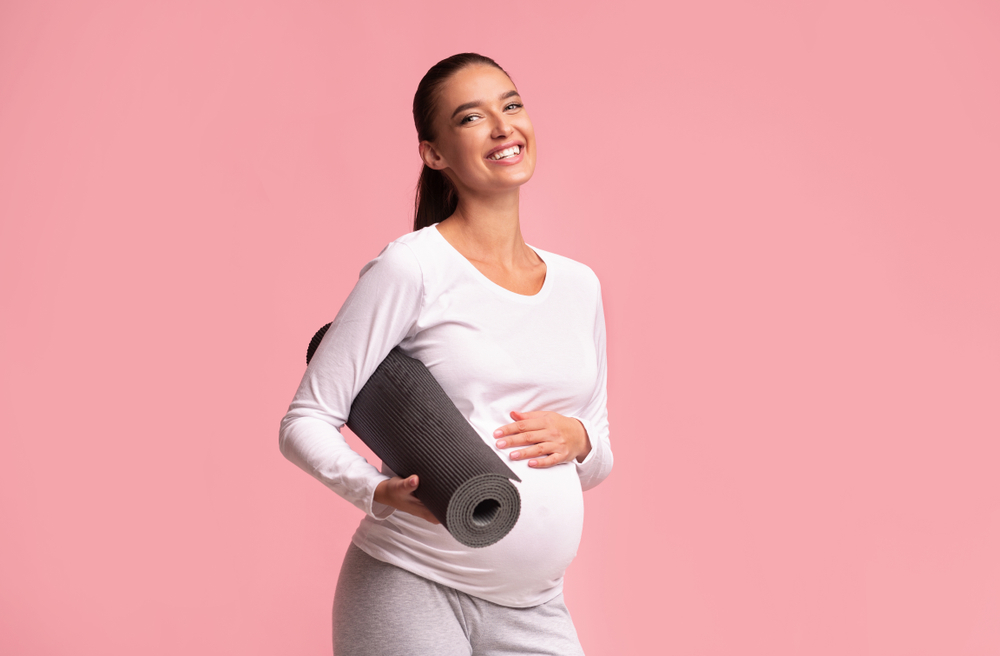




Yoga in pregnancy: why practising it in the morning is good for mothers and babies
Psycho-physical wellbeing, better breathing control, reduced stress peaks, but also greater flexibility and benefits on sleep quality. These are the fruits, or rather the results, of those who habitually practise Yoga. A discipline, increasingly popular among adults and young people, men and women without distinction, and which is gradually becoming a part of everyday life.
And what if the benefits, already excellent in themselves, were to be even stronger during pregnancy?
This discipline in fact — like Pilates — is highly recommended not only by teachers but also by gynaecologists, psychologists and midwives in order to connect the mother even more closely with her child.
But let us take a step back.
During the months of gestation, a woman’s body automatically releases a hormone called relaxin. This hormone, easy to guess, relaxes and makes the pelvic ligaments more flexible in order to create elasticity in the pubic area in preparation for childbirth. At the same time, however, the same hormone can cause increased flexibility and risk of stretching ligaments or something similar. As always, the answer, especially in pregnancy with the physical limitations of a bulky belly, increased heart rate and dizziness, lies somewhere in between, and it is necessary to find a balance without giving up this practice that has more pros than cons, especially for the connection with the future child.
During yoga sessions, in fact, the woman learns to listen to her body and her emotions, she feels the baby more and communicates with him even more, she relaxes and accepts the metamorphosis of her body more peacefully. During pregnancy, then, the muscular fascia of the perineum that supports the uterus must be more elastic to allow the passage of the foetus through the birth canal. Many yoga poses act on this area and alleviate contractions. In a word? Elasticity.
Last — but not least — breathing.
During childbirth, breathing is indeed fundamental but it is not always easy to do it correctly, especially during peaks of pain.
Here, once again, yoga helps mothers-to-be by teaching them different breathing techniques that will then help them manage the strain and control the pain.
Of course, it must be the doctor who authorises physical activity, but if there are no contraindications, gentle exercise such as yoga is recommended during pregnancy in order to stay in shape and not gain too many kilos.
This is because it is a congenial activity since it makes the whole body work by adapting postures to the growth of the belly and emotions. The ideal option would be to take a prenatal yoga class, i.e. sessions practised specifically for the pregnant woman.
The nine months of pregnancy are in fact months in which there are many physical changes. On the one hand, there is the belly that slowly and gradually grows, decisively changing the structure of the body. On the other, blood circulation slows down, breathing gets more laboured, extra kilos are gained, the breasts swell, the legs swell, the back curves and often hurts.
Prenatal yoga, therefore, helps to improve breathing and, for this reason, is very useful during pregnancy, because more oxygenation of the mother’s blood transmits more oxygen to the baby, thus promoting its optimal development.
It is also an excellent preparation course for childbirth and teaches correct posture in daily life. With greater knowledge of the body, it is easier to manage the belly and weight.
Practising yoga instils serenity, alleviates pregnancy discomfort and is ideal for keeping your shape before and after childbirth.
When to practise this discipline? The best time is in the morning.
It is common during the months of pregnancy to have trouble sleeping and practising it in the morning helps reduce the tensions accumulated during the hours in bed and give the body energy and vitality to face the day.
Physical practice before going to sleep is strongly discouraged because it can create too much energy that does not help you fall asleep. Before falling asleep, instead, you can meditate and listen to music to relax.
There are many ways in which you can take care of your health and that of your baby: don’t forget to keep your blood group under control to avoid a Rh conflict: thanks to Anti-D immunoprophylaxis, you will be able to carry on with your pregnancy peacefully.
By Francesca Franceschi


